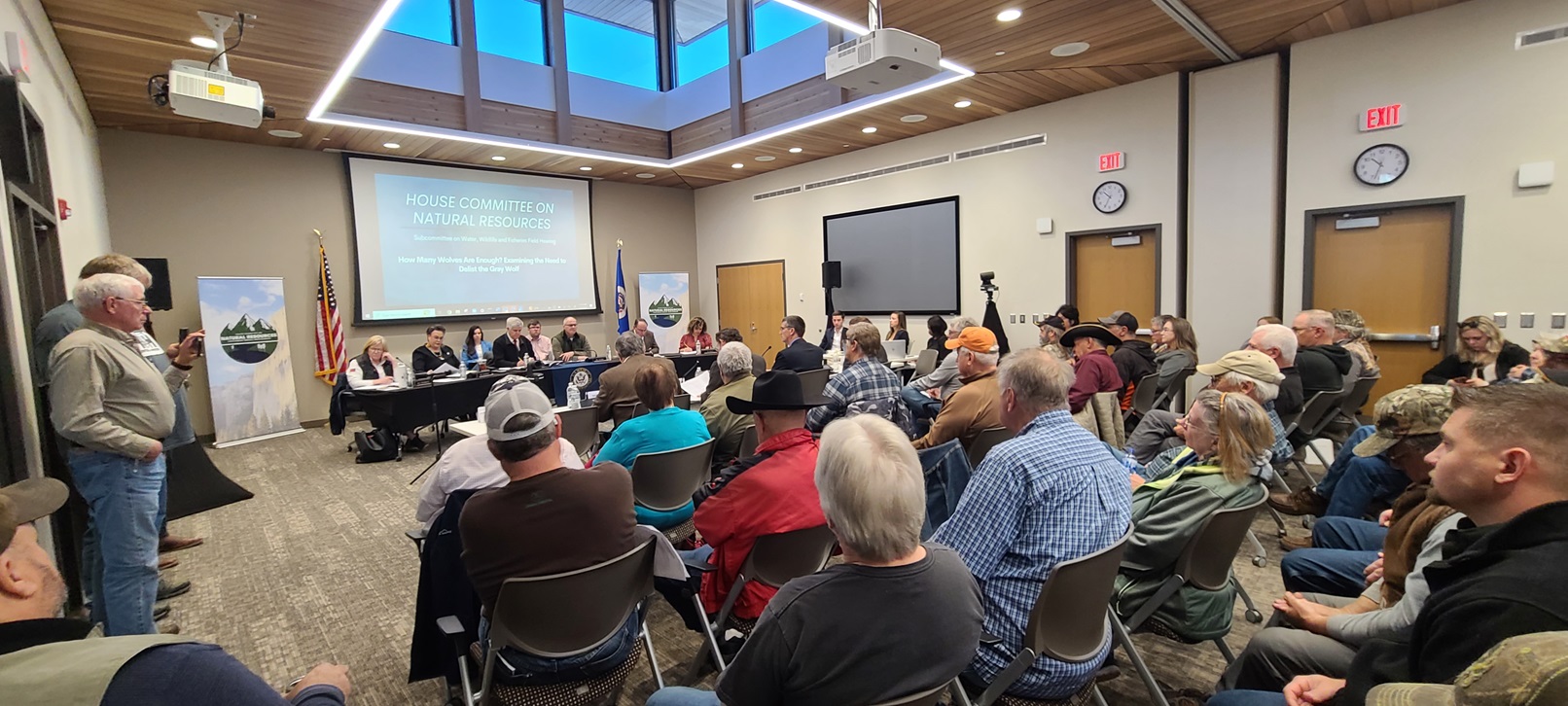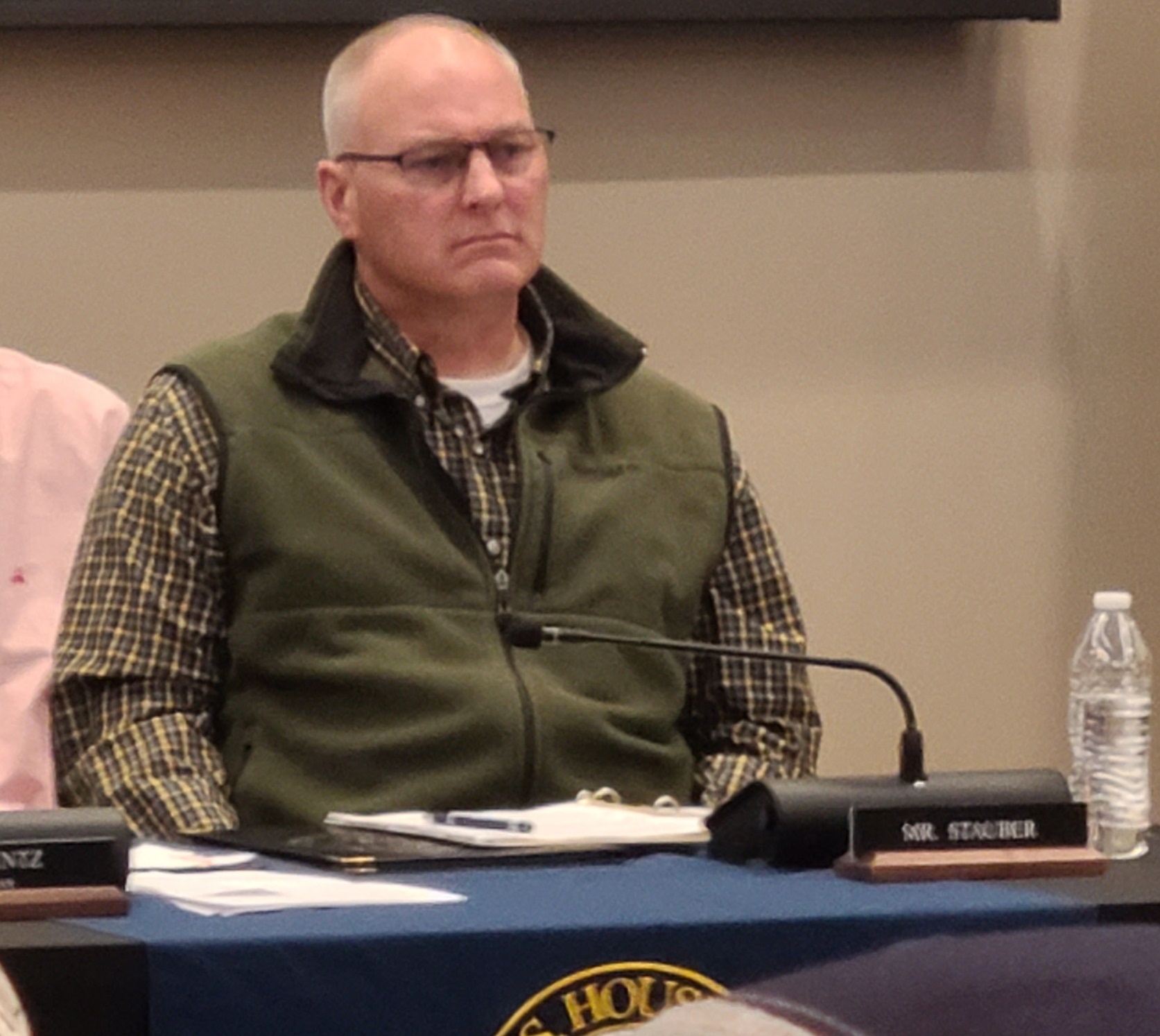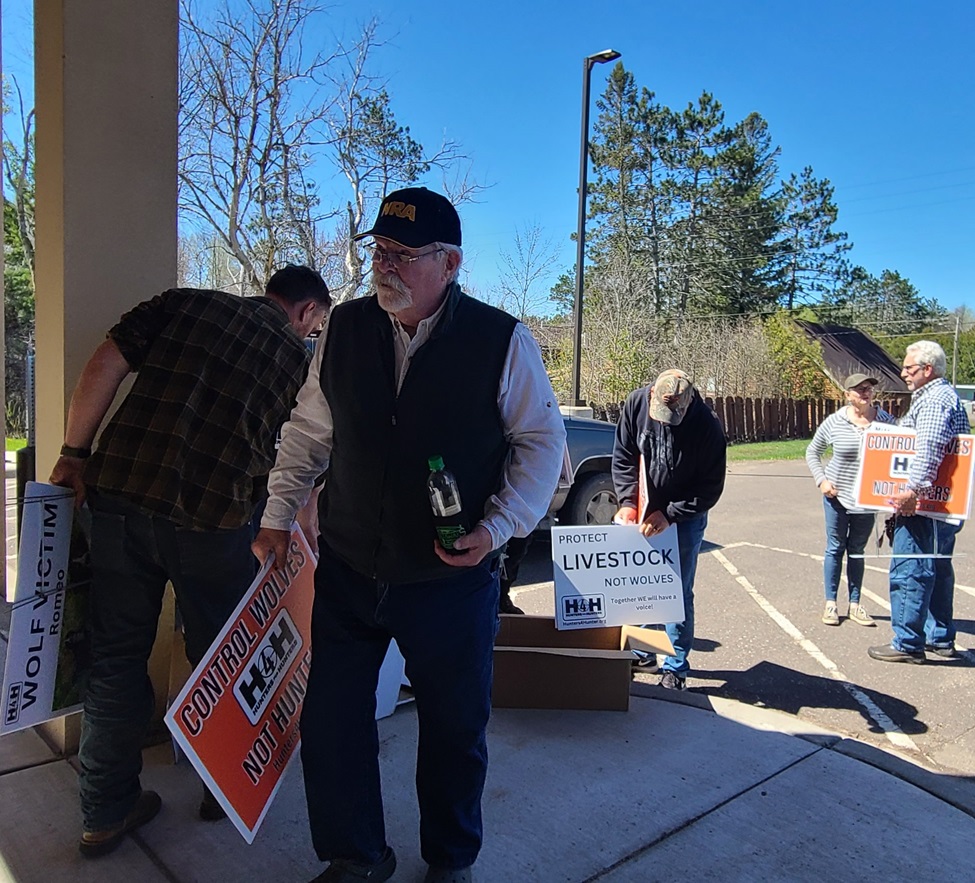US Congressional Subcommittee on Water, Wildlife, and Fisheries hearing of 05/03/2024, Sandstone, MN


Last week, the Subcommittee on Water, Wildlife, and Fisheries Chairman Cliff Bentz and U.S. Rep. Pete Stauber hosted a hearing in Northern Minnesota to discuss/promote the delisting of gray wolves under the Endangered Species Act.
Other speakers included Representatives Michelle Fischbach, Harriet Hageman, Tom Tiffany, and Celeste Maloy. The speakers, all Republicans, made many unsubstantiated and outrageous claims about gray wolf recovery, its impact on local wildlife, livestock, and pets, and argued for returning management to the states. This hearing pandered to anti-wolf groups and focused on fear-mongering over the facts. We’d like to note that the USFWS and Minnesota DNR declined an invite to this hearing, which is a good sign that we are not the only ones who see the negative, self-serving agenda of these legislators.
The following are comments submitted by HFW to the committee on May 8, 2024: Howling for Wolves is a Minnesota based wolf advocacy organization that started in 2012. These are some of our concerns raised by the testimony provided at the May 3, 2024 subcommittee hearing in Sandstone Minnesota.
The issue of human safety was raised several times in a dramatic fashion during the hearing. The state of Minnesota has laws that allow for the killing of any animal, endangered or not, in the pursuit of human safety. The repeated statements about human safety mislead the public into believing that wolves are dangerous and that we have no way to handle that danger. This is not true.

Wolves die in many ways now and will be killed in many ways after they are delisted even without a wolf hunt. The constant outcry for a wolf hunt skips this important fact. At the current time there are high numbers of wolf mortalities as demonstrated by a 16-year-long collared wolf study by the state’s DNR from 2004-2016. The last initiation of wolf hunts in 2012 ignited wolf killing that is illegal and continuous through more than five years after the hunts ended to an annual mortality of 43%. The data ended in 2019. That is a 43% mortality annually and a more than tripling of human-caused wolf deaths since those hunts started in 2012 and lasting long after the hunts ended. In other words, legal wolf killing leads to more illegal wolf killing. https://www.nature.com/articles/s41598-023-38148-z Even the Voyageurs wolf project had a 54% mortality of their wolves this past year. The state cannot keep Minnesota’s wolves safe from poaching and the hearing ignored this fact. Reference: The Minnesota Daily dated April 21, 2024 by Logan Anderson.
The testimony of an expert from the College of the Ozarks stated that wolves can survive a 29% mortality rate as sustainable. While we can argue what is sustainable in terms of genetics and avoiding long-term extinction, I think you will agree that 29% is a lot less than what is happening to our wolves in Minnesota now. When wolves are constantly being killed and then reproducing at younger rates with smaller packs—nonlethal methods become less effective and there is more pressure on livestock due to the smaller and younger packs.
While I appreciate the attempt to establish a mortality threshold, the focus on a single number raises several questions. First, it's crucial to consider the specific context of Minnesota's wolf population and its unique dynamics. General mortality rates derived from different ecosystems might not be directly applicable.

If this high mortality rate is already occurring, primarily due to human caused wolf deaths such as conflict, vehicle collisions, and poaching, further population reduction through a public wolf hunt is unnecessary and potentially very detrimental to wolves. But worse is that it increases the poaching already occurring. Beyond immediate population levels, we must consider the long-term health and sustainability of the wolf population. A critical factor in maintaining a healthy population is genetic diversity and stable packs that control their territories and hunt deer. High and sustained mortality rates can lead to inbreeding and ultimately threaten the population's long-term viability.
This hearing ignored the science that we already have in Minnesota on our wolves. But worse it ignored all of the work we must do to prepare to keep wolves recovering once they are delisted and in turn the work required to demonstrate to the FWS that wolves can survive delisting. At this point we have much work to do to change the attitudes around killing wolves. The subcommittee took us several steps backwards.
